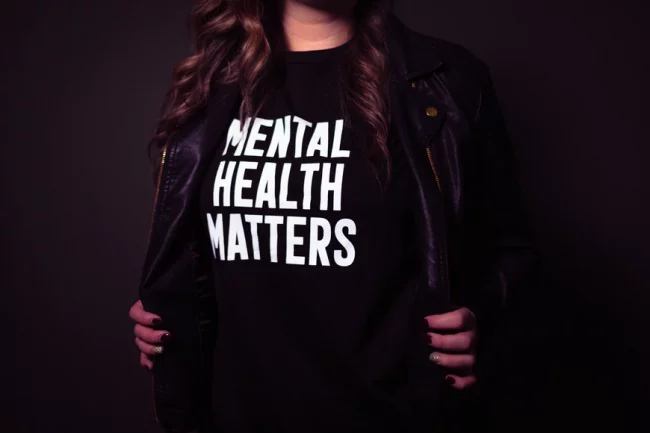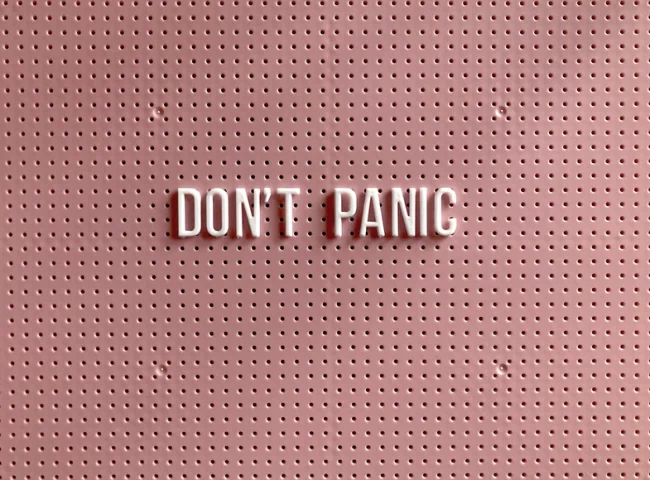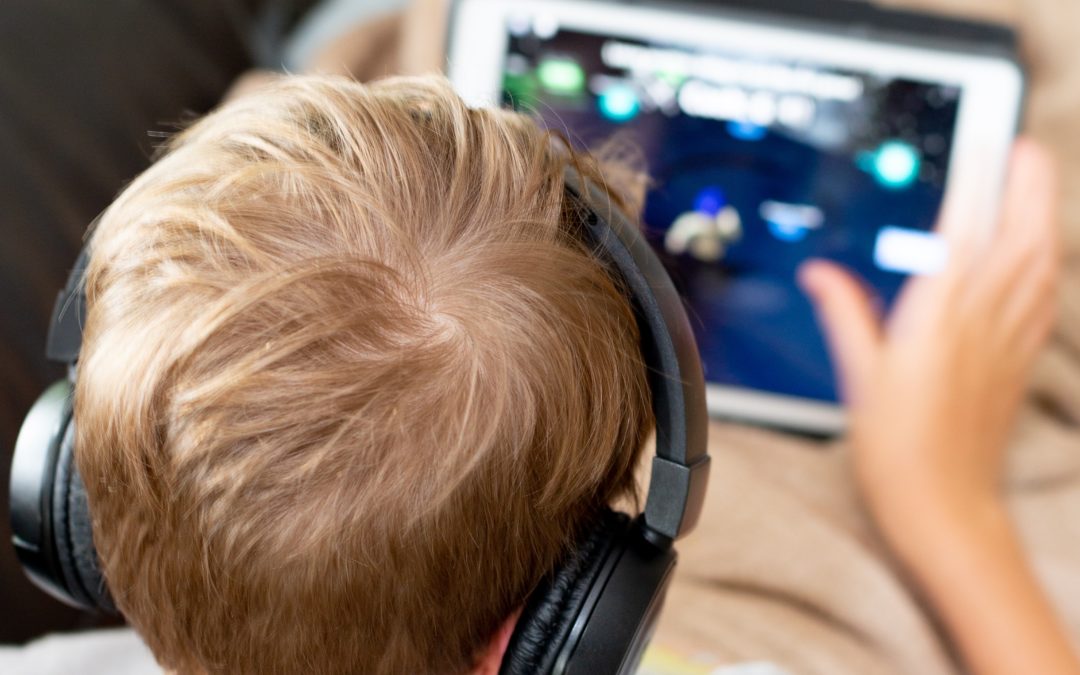
This week is Childrens Mental Health Week and Dad Info has put together information about children’s mental health issues all in one place.
Content List:
Anxiety

Many children experience anxiety at some stage. Here’s how to help your child cope:
Dealing with anxious thoughts
Children can be helped to recognise the difference between ‘real’ worry thoughts and ‘what if’ thoughts.
A real worry thought might be about going on a trip without a parent for example, which you can then help them manage, perhaps by doing a local test run etc.
A ‘what if’ worry comes from the child’s imagination, and is usually a fear of what might happen- for example frightening noises they hear at night. You can help them process those fears more rationally by showing them what they are really hearing (water pipes, or the wind, for example) to help calm the fear.
If your child is anxious at bedtime or struggling to sleep read more here about parenting a child with nightmares.
The following strategies can help your child cope:
Drawing
Drawing a picture of what is making a child anxious helps process strong emotions. The child can tell you about their drawing which can be easier than talking about their worry. Helping children choose what to do with the drawing helps them control a worry. Do they want to keep it, tear it, stamp on it or throw it away?
A worry monster
Some children respond well to the idea of giving a worry to a worry monster, which can be home made from boxes with a slit for a mouth to post worries in, or can be shop bought. Ask your child to write down their worry and post it into the monster for him to eat up.
Writing
Older children can write about their worry in a journal. They could choose to talk about it or keep it private. Some older children find it easier to message a parent or carer on a phone with their worry rather than speak about it.
Recognising feelings in the body
When children are anxious, they can be helped by asking them how their worry is making their body feel. Do they say their tummy aches or feels funny? Do they have thoughts in their brain that never stop? Learning to relax the body’s muscle system allows children to control the escalation of physical symptoms.
To help this, they could try:
Breathing: Hold a hand out and trace around each finger. Breathe in up the finger, hold your breath, breathe out down your finger. Repeat five times.
Learning to relax body muscles: Make yourself a stiff as a robot, slowly change each part of your body into a floppy rag doll.
Children can also put together a calm down box to use when they are feeling anxious. It can contain bubbles to blow, playdoh to feel, fidget toys, and something to smell, such as lavender.
Releasing tension
A good cry can be healing, and feelings can be let out in a safe way such as punching or kicking a pillow. Going for a walk or another form of physical activity such as skipping or jumping on a trampoline can work wonders. If a child wants to be alone, reassurance should be given that you understand their wish but are available if they want you.
If you are concerned about your child contact your GP who can help support you and signpost you to available services. You are welcome to come and ask questions in our forum and our parent support volunteers will listen and share their experiences with you.
Useful links and further information:
Have you considered counselling for you or your teenager?
If you would like to find our more information about our online counselling, provided by experienced and qualified counsellors click here.
Depression

Everyone gets the blues sometimes but depression is a more serious, life-affecting problem. It’s important to be aware of changes in your child’s mood or behaviour and be alert to a downturn in their mental health.
Symptoms of depression in children often include:
- being often irritable or sad
- becoming antisocial
- having trouble sleeping or sleep more than usual
- not being able to concentrate
- interacting less with friends and family
- having low confidence
- over or under-eating
- being unable to relax or be more lethargic than usual
- expressing feelings of feeling guilty or worthless
- feeling empty or numb (numb)
- having thoughts about suicide or self-harming
- actually self-harming, for example, by cutting their skin (see below for self harm information LINK).
Some children have problems with anxiety as well as depression. Some also have physical symptoms, such as headaches and stomach aches.
Problems at school can be a sign of depression in children and young people, as can problem behaviour.
Older children who are depressed may misuse drugs or alcohol.
Why is my child depressed?
Things that increase the risk of depression in children include:
- family difficulties
- bullying
- physical, emotional or sexual abuse
- a family history of depression or other mental health problems
Sometimes depression is triggered by a single difficult event, such as a bereavement or problems with their friends.
However, it’s often caused by a mixture of things. Some children may have more of a tendency to feel depressed as well as having experienced some difficult life events.
What to do if you think your child is depressed
- Have open conversations with your child and tell them that you’re there for them whenever they need to talk.
- Read further tips on talking to younger children about their feelings and talking to teenagers.
- Whatever they reveal is causing them distress, ensure you don’t judge them or fail to take their upset seriously. What may seem trivial to an adult can be very hard for a child.
- If they don’t want to talk to you, encourage them to open up to another trusted adult.
- Above all, be a loving presence in their lives and support them through their difficulties.
- You could also contact their school to ask if the staff have any concerns.
When to get medical help
If you think your child is depressed, or you’re concerned about their well-being, make an appointment with them to see a GP.
If necessary, the GP will refer your child to a local children and young people’s mental health service (CYPMHS) for specialist help.
You may also be able to refer your child without seeing a GP.
Further support
If you need during a mental health crisis or emergency, read about where to get urgent help for mental health.
If you’re worried about any aspect of your child’s mental health, you can call the charity YoungMinds’ free parents’ helpline for advice on 0808 802 5544 from Monday to Friday, 9.30am to 4pm.
The YoungMinds website also has mental health support and advice for your child.
Self harm

Self harm is when someone hurts themselves on purpose as a way of managing distressing feelings and emotions. The intensity of feelings can cause someone to self harm as a way to release their distress, or it can be a way of feeling something when a person experiencing numbness.
It is important to know that self harm is never because of trying to get attention. Someone who is self harming is in distress. Seeing your child go through self harming can be extremely difficult and upsetting as a parent. However, lots of people go through a patch of self harm and then come out of it afterwards with healthier ways of coping.
Methods of self harm
There are a variety of methods that people use to self harm. They can include:
- cutting themselves
- scratching or burning the skin
- biting
- hitting themselves/ banging their head on a wall
- pulling their hair out
Signs to look out for
- cuts, bruises, marks or bald patches
- wanting to keep arms or legs covered even in hot weather
- seeming sad or low
- bloody tissues in bins
- anger or irritability
- low self esteem
Why do people self harm?
If a person is self harming it means that something in their life has become too much for them to cope with. In the same way that a pan boils over, the self harmer’s mind has boiled over with stress.
While it may be hard to understand, self harm can help the individual to feel more in control of situations in their lives that feel out of control.
However, whatever relief self harm brings is only temporary, and the same issues will resurface again later. Therefore, it’s important to get to the root of the issues causing the self harm behaviour.
Self harmers often also feel ashamed and distressed by their own self harming, and frightened by their own actions. This causes a vicious cycle which is hard to stop.
How to help your child
In the short term there are various strategies you can employ to help your child avoid self harming. The aim is to find ways to soothe and calm them when they feel the urge to harm themselves. Some suggestions are:
- writing down how they’re feeling
- punching a cushion or pillow
- going for a run
- listening to loud music
- focussing on their breathing- putting their hand on their stomach and slowly breathing in and out
- wrapping up in a cosy blanket
- spending time with a pet
- talking to someone- a friend, family member or a helpline (text SHOUT to 85258 for a text conversation with someone)
- doing a calming hobby such a baking, drawing or reading
- use the brilliant NHS app Calm Harm which has brilliant times activities to calm down the urge to self harm.
In the longer term, it’s important to get to the bottom of what’s going on and provide a supportive presence. You can do this by:
- providing a warm, loving presence. Open conversations about how your child is feeling regularly and aim to be non-judgemental and calm. Let them know they can talk to you at any time.
- discuss together what’s causing them to want to self harm.
- aim to help them recognise when their feelings are building towards the urge to self harm. Keeping a mood diary could help with this, as a way to understand the triggers and what happens in their mind and body.
- spend time regularly with your child doing activities they enjoy. It could be as simple as watching their favourite film together with some snacks or going on a bike ride together. Anything that is good for the soul will help.
- seek professional help. The first point of contact should be your GP, who can then signpost the best service to assist your child’s needs.









